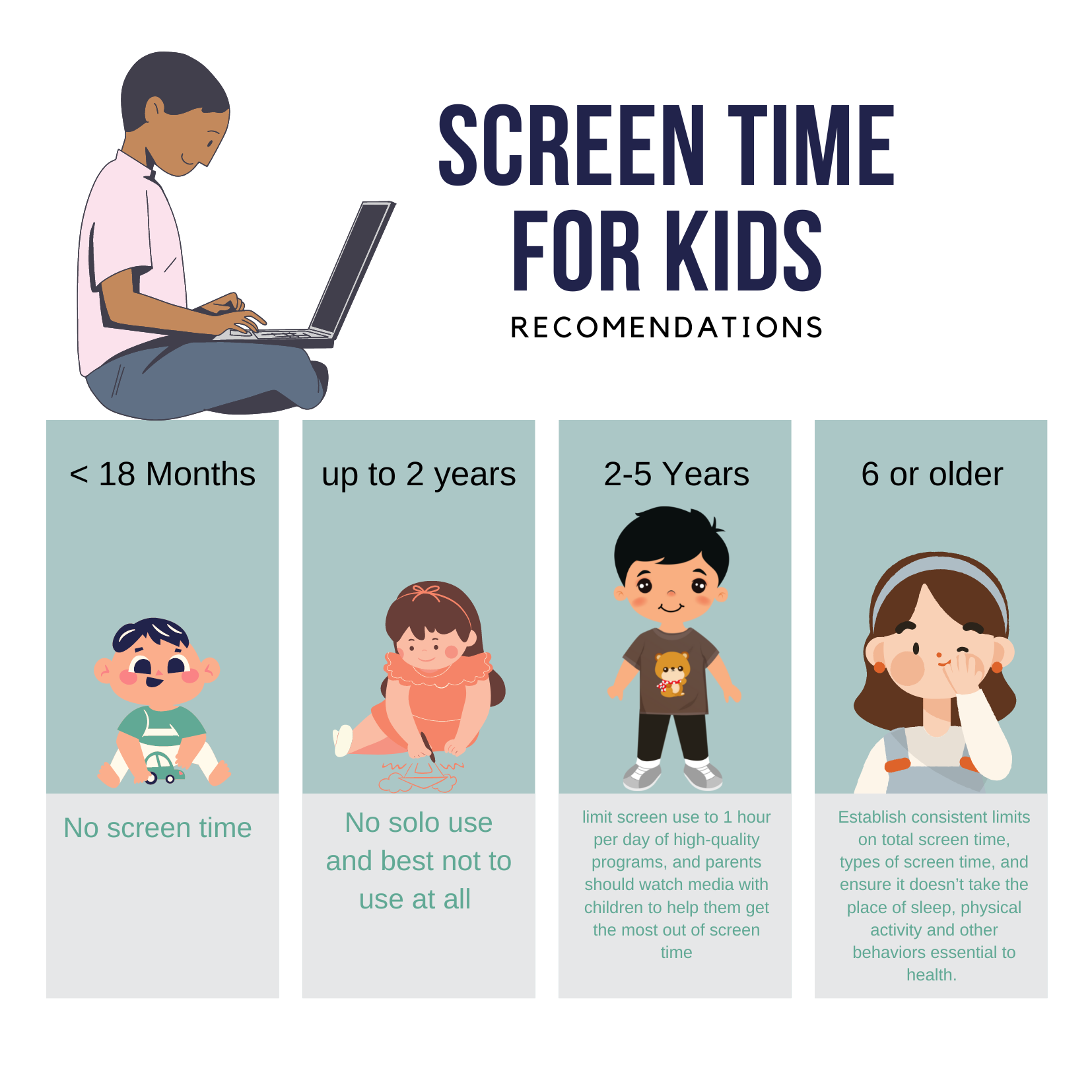Benefits and risks:
In today’s digital age, screen time has become an inevitable part of children’s daily lives. From playing video games to watching videos and connecting with friends, kids are spending more and more time in front of screens. While screens offer many benefits, such as educational opportunities and entertainment, excessive screen time can have negative effects on children’s physical and mental health.
Benefits of Screen Time for Kids:
- Education: Screens can be used to support learning and provide educational experiences for kids. For example, there are many educational apps and websites that can help children learn math, science, and reading in an interactive and engaging way.
- Communication: Screens also provide a platform for kids to communicate with friends and family. Social media and video calling apps allow kids to stay connected with their loved ones and make new friends.
- Entertainment: Screens are also a source of entertainment for kids. From playing video games to watching movies and TV shows, screens provide endless hours of fun and excitement.
Risks of Excessive Screen Time for Kids:
- Physical Health: Spending too much time in front of screens can have negative effects on kids’ physical health. It can lead to eye strain, headaches, and poor posture, and it can also decrease the amount of physical activity that children engage in, leading to weight gain and decreased overall fitness.
- Mental Health: Excessive screen time can also impact kids’ mental health. It can lead to feelings of anxiety, depression, and social isolation, and it can also interfere with children’s ability to develop healthy relationships and communication skills.
- Sleep: Screen time before bed can also disrupt kids’ sleep patterns, making it more difficult for them to fall asleep and stay asleep throughout the night.
Balancing Screen Time for Kids:
- Set Limits: It is important to set limits on the amount of screen time that kids are allowed to have each day. This will help ensure that they are not spending too much time in front of screens and that they are engaging in other activities that are important for their health and development.
- Encourage Physical Activity: Encourage kids to engage in physical activity, such as playing outside or participating in sports, to help counterbalance the effects of screen time.
- Model Healthy Screen Time Habits: As parents and caregivers, it is important to model healthy screen time habits ourselves. This means limiting our own screen time and demonstrating the importance of unplugging and engaging in other activities.
So how much we should let kids spend on their devices? Here are some guidelines:

To set up screen time restrictions:
To iOS devices: https://support.apple.com/en-us/HT208982
To Android devices: https://support.google.com/android/answer/9346420?hl=en
To Nintendo: https://www.nintendo.com/switch/parental-controls/
Our advice and things we do and found helpful in order to limit screen time:
- Screen only after homework.
- Let him set his own timer up while playing games.
- Plan ‘Screen time’ in daily schedule, so that he has routine and he knows when and for how long he can play.
- No screens 1 hour before bed.
- No screens in the bathroom.
- No screens at mealtime.
Remeber: We are not perfect and it’s okay to let our kids play a bit more sometimes. We shouldn’t feel guily about this. Its all about balance.
